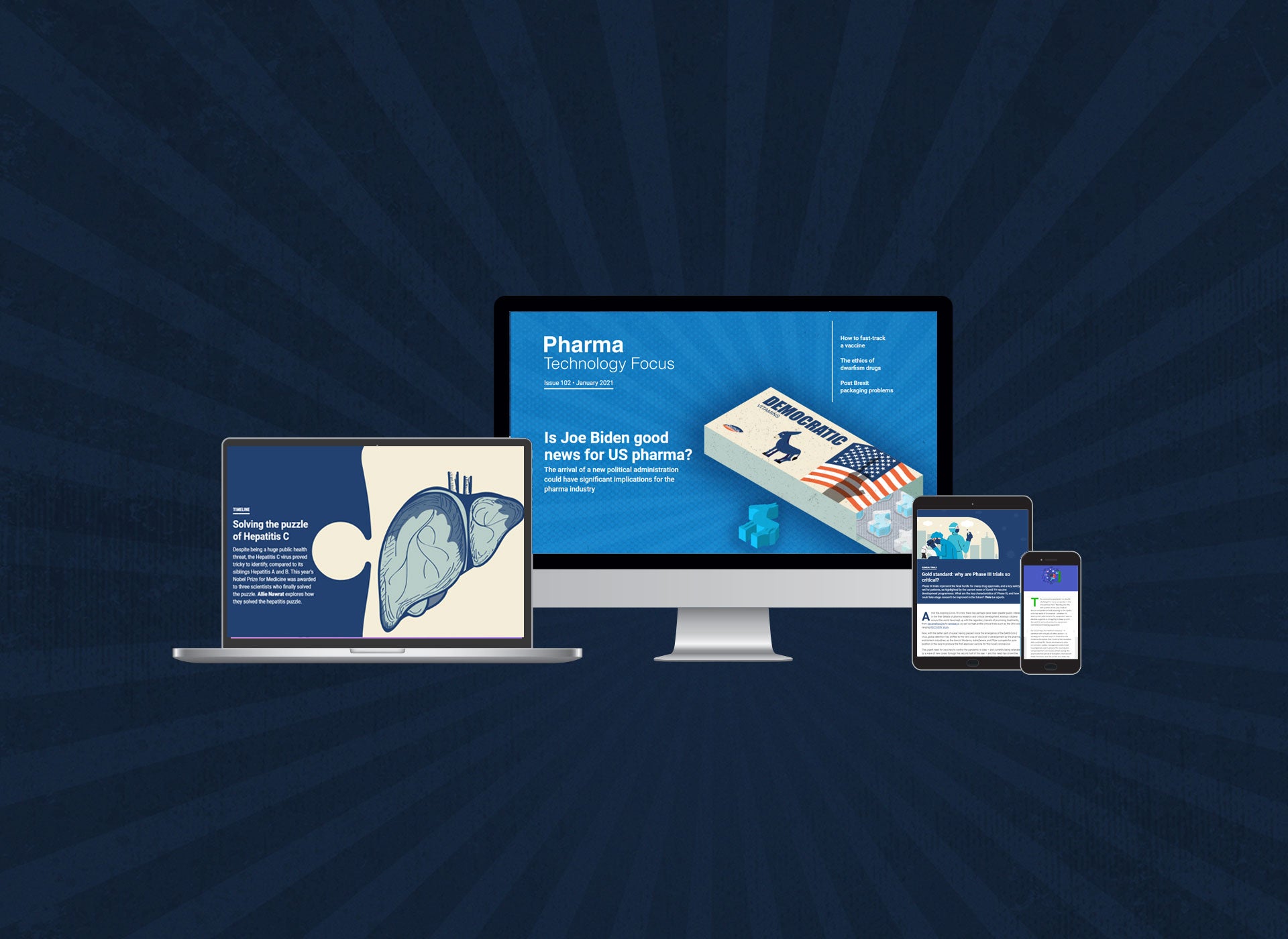
Pharma Technology Focus is now available on all devices. Read it for free here
There have been two top stories dominating headlines over the past few months: Covid-19 and the US election. Both topics will have significant global reverberations around the world over the coming years, a fact made quite clear when healthcare was certified as a key political issue during the pre-election debates. After Joe Biden was officially declared President-elect, attentions turned to how his potential policies may affect different industries – notably how his new administration would deal with the pharma industry during a period of heightened demand on the sector.

Discover B2B Marketing That Performs
Combine business intelligence and editorial excellence to reach engaged professionals across 36 leading media platforms.
With this in mind, we take a close look at Biden’s previous attitude towards Big Pharma to find out what the industry can expect from the incoming administration.
Elsewhere in this issue, we investigate the ethical implications of developing a drug to targets one of the most common types of dwarfism, learn what it takes to fast track a vaccine from concept to delivery, and track the ground-breaking discovery of Hepatitis C that landed three scientists the 2020 Nobel Prize for Medicine.
Plus, we find out why anti-counterfeit packaging is becoming a hot topic in Brexit discussions, explore the growing trend of self-medication, and ask if the pharma industry’s sustainability goals are bold enough.
All this and more in this latest issue of Pharma Technology Magazine.

US Tariffs are shifting - will you react or anticipate?
Don’t let policy changes catch you off guard. Stay proactive with real-time data and expert analysis.
By GlobalData
In this issue
Solving the puzzle of Hepatitis C
Despite being a huge public health threat, the Hepatitis C virus proved tricky to identify, compared to its siblings Hepatitis A and B. This year’s Nobel Prize for Medicine was awarded to three scientists who finally solved the puzzle. Allie Nawrat explores how they solved the hepatitis puzzle.
Read the article here.
Why is President-elect Joe Biden a good pick for the pharma industry?
Former vice-president Joe Biden has defeated incumbent Donald Trump in the 2020 US Presidential election. A major battleground in the election was healthcare, particularly around the response to the Covid-19 pandemic, reforms to the Affordable Care Act and approaches to reduce drug prices in the US. Allie Nawrat explores why the pharma industry prefers Biden to his predecessor.
Read the article here.
Is self-medication the future of pharma?
In recent years, the lines between different healthcare types, medical remedies and treatments have begun to blur. This has led to an increasing number of patients opting to self-medicate with over-the-counter medications rather than visit a doctor, particularly following the Covid-19 crisis. To find out if this trend could have a lasting impact on the industry, Abi Millar asks: are OTC drug options on the rise?
Read the article here
Restricted growth: hope and fear as a new drug challenges attitudes to achondroplasia
BioMarin’s vosoritide could become the world’s first treatment to address the underlying cause of achondroplasia, the most common form of dwarfism. How has the drug’s clinical programme been progressing, and why has it prompted a mixed response from the restricted-growth community? Chris Lo reports.
Read the article here
How do you fast-track a vaccine? UCL scientists weigh in
It usually takes around a decade to bring a new vaccine to market, but several Covid-19 candidates have already shown promising results in late-stage trials. UCL’s Stephen Morris and Beatrice Melinek spoke with Natalie Healey to discuss how the pharmaceutical industry has dramatically reduced development timelines during the crisis.
Read the article here
Fraudulent pharmaceuticals: the legacy of anti-counterfeit packaging
As a result of its departure from the EU, the UK is in need of new solutions to protect its supply chains from counterfeit medicines. At the same time, the Covid-19 pandemic has exploded the drug market and left the door open to unscrupulous fakers eager to make a quick buck. So what’s the solution? Step forward anti-counterfeit packaging. Chloe Kent takes a look at innovation in this arena and finds out why it’s more important than ever.
Read the article here
Are healthcare’s sustainability goals bold enough?
Healthcare is one of the biggest polluting industries. Although many companies and organisations operating in the sector have pledged to become carbon neutral within the next few decades – including the NHS and AstraZeneca – are these green goals just window-dressing? Allie Nawrat explores whether the industry’s sustainability commitments go far enough.
Read the article here
New Zealand: a promising destination for trials in a post-Covid-19 world?
Unlike the rest of the world, New Zealand’s speedy and decisive response to Covid-19 has successfully enabled the country’s clinical trials to continue largely unscathed. Allie Nawrat talks to key actors in the New Zealand clinical space about how Covid-19 has positively impacted the country’s trial landscape, as well as how to ensure this success is long-term.
Read the article here
Next issue preview
In the next issue of Pharma Technology Focus, we investigate the impact that Amazon Pharmacy’s entry into the online pharmacy space will have on the market, ask if honest brokers could help to bridge the divide between the pharma industry and communities of colour, and find out if the industry response to Covid-19 could provide pharma with a much-needed image makeover.
Plus, we speak to the UK Vaccines Manufacturing and Innovation Centre about the logistics of delivering Covid-19 vaccines to the UK population, examine a new initiative from the World Health Organization that aims to tackle drug resistance and revitalise the antibiotic pipeline, and profile the first weight loss drug to be recommended for use on the NHS in England in almost a decade.
Also, we take a look at a real-time genomic surveillance system for Covid-19 in the UK and explore the potential of ChariotMS, the first multiple sclerosis clinical trial to focus only on people who can’t walk.




